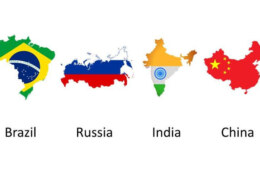In the evolving landscape of global politics, the rise of emerging superpowers—particularly China, India, and Brazil—has significantly altered the traditional dynamics of international relations. Once considered peripheral to global decision-making, these nations now wield growing influence across economic, military, and diplomatic spheres. Their ascent is reshaping the balance of power, challenging Western dominance, and creating new opportunities and tensions in global governance.
1. The Shifting Global Power Structure
For much of the 20th century, geopolitical power was concentrated in the hands of Western powers, primarily the United States and its European allies. However, the 21st century has witnessed a notable redistribution of influence. China, India, and Brazil—each with vast populations, growing economies, and regional sway—are now asserting themselves as key players on the global stage.
China: A Strategic Challenger
China’s rise is perhaps the most prominent and transformative. With the world’s second-largest economy, a rapidly modernizing military, and an assertive foreign policy, China has positioned itself as a global rival to the United States. Initiatives like the Belt and Road Initiative (BRI) extend China’s economic and political reach across Asia, Africa, and Europe, while its assertive stance in the South China Sea and its ambitions in Taiwan raise significant geopolitical tensions.
China is also reshaping international institutions by promoting alternatives to Western-led systems—evident in its central role in organizations like the BRICS group and the Asian Infrastructure Investment Bank (AIIB).
India: A Balancing Force
India is emerging as a counterweight to China in Asia. As the world’s most populous country and a fast-growing economy, India is increasingly seen as a strategic partner by Western democracies, particularly in the Indo-Pacific region. India’s active role in forums such as the Quad (Quadrilateral Security Dialogue with the U.S., Japan, and Australia) signals its alignment with efforts to ensure a multipolar Asia.
Domestically, India’s investments in technology, space exploration, and military modernization further enhance its global stature. While India maintains a policy of strategic autonomy, its geopolitical influence is clearly expanding.
Brazil: Regional Power and Global Aspirant
Though not as globally assertive as China or India, Brazil remains a pivotal player in Latin America. As the region’s largest economy and democracy, Brazil plays a critical role in shaping regional policies on trade, environment, and development. On the global stage, Brazil advocates for reform of international institutions such as the UN Security Council, where it seeks a permanent seat.
Brazil’s leadership in climate diplomacy—especially concerning the Amazon rainforest—and its participation in South-South cooperation efforts further highlight its ambitions to be a voice for the Global South.
2. Impacts on Global Governance
The rise of these emerging powers has profound implications for global governance. As they gain influence, calls for more inclusive and representative international institutions grow louder. Traditional powers face pressure to share authority in global forums like the World Trade Organization (WTO), the International Monetary Fund (IMF), and the UN.
The differing political systems and values of these emerging powers also introduce new dynamics. While India and Brazil are democracies, China’s authoritarian model offers an alternative vision of development, sparking debates about governance and human rights in international diplomacy.
3. Strategic Competition and Cooperation
The rise of multiple power centers has led to both competition and cooperation. Geopolitical rivalries, especially between China and the United States or between India and China, are intensifying. These tensions play out in border disputes, trade wars, and military posturing.
At the same time, cooperation among emerging powers is evident through alliances like BRICS, which advocate for a multipolar world and seek to challenge Western economic dominance. Such groupings create alternative platforms for negotiation and development.
4. Regional and Domestic Challenges
Despite their global ambitions, these emerging superpowers face significant domestic and regional hurdles. Internal political divisions, economic disparities, and social unrest can hinder their global influence. Moreover, regional rivalries—such as India-Pakistan tensions or Brazil’s struggle to lead a fragmented Latin America—limit their ability to act unilaterally on the world stage.
Conclusion
The geopolitical impacts of emerging superpowers like China, India, and Brazil are reshaping the contours of global politics. Their growing assertiveness challenges the long-standing Western order, introduces new alliances and rivalries, and compels a rethinking of international governance. While their trajectories differ, these nations collectively signal a shift toward a more multipolar, diverse, and complex world order—one where power is more evenly distributed and voices from the Global South play a greater role in shaping the global future

